8 in 10 people in Singapore delayed healthcare due to work, cost and family concerns
A new study finds 83% of Singapore residents delayed medical care in the past year, often due to work, family responsibilities, and cost concerns. Experts call for improved health literacy, cost clarity, and better patient support to encourage timely care.

- 83% of people in Singapore delayed healthcare in the past year, mainly due to work, cost, or not wanting to burden family.
- Lack of clarity on where to seek help and concerns over healthcare costs were key barriers.
- Experts recommend better health literacy, cost transparency, and coordinated patient support.
SINGAPORE: A majority of people in Singapore are putting off necessary medical treatment, according to new research that reveals 83 per cent of respondents delayed seeking care in the past year.
The study, titled Patient voices Singapore: towards more informed and seamless care, was conducted by Economist Impact and commissioned by Prudential plc. It surveyed 1,024 adults aged 18 and above between April and May 2025.
According to the findings, personal obligations were a major reason for the delay, with respondents citing the need to prioritise work or avoid being a burden to family members.
Other factors included underestimating the severity of symptoms and negative past experiences with the healthcare system.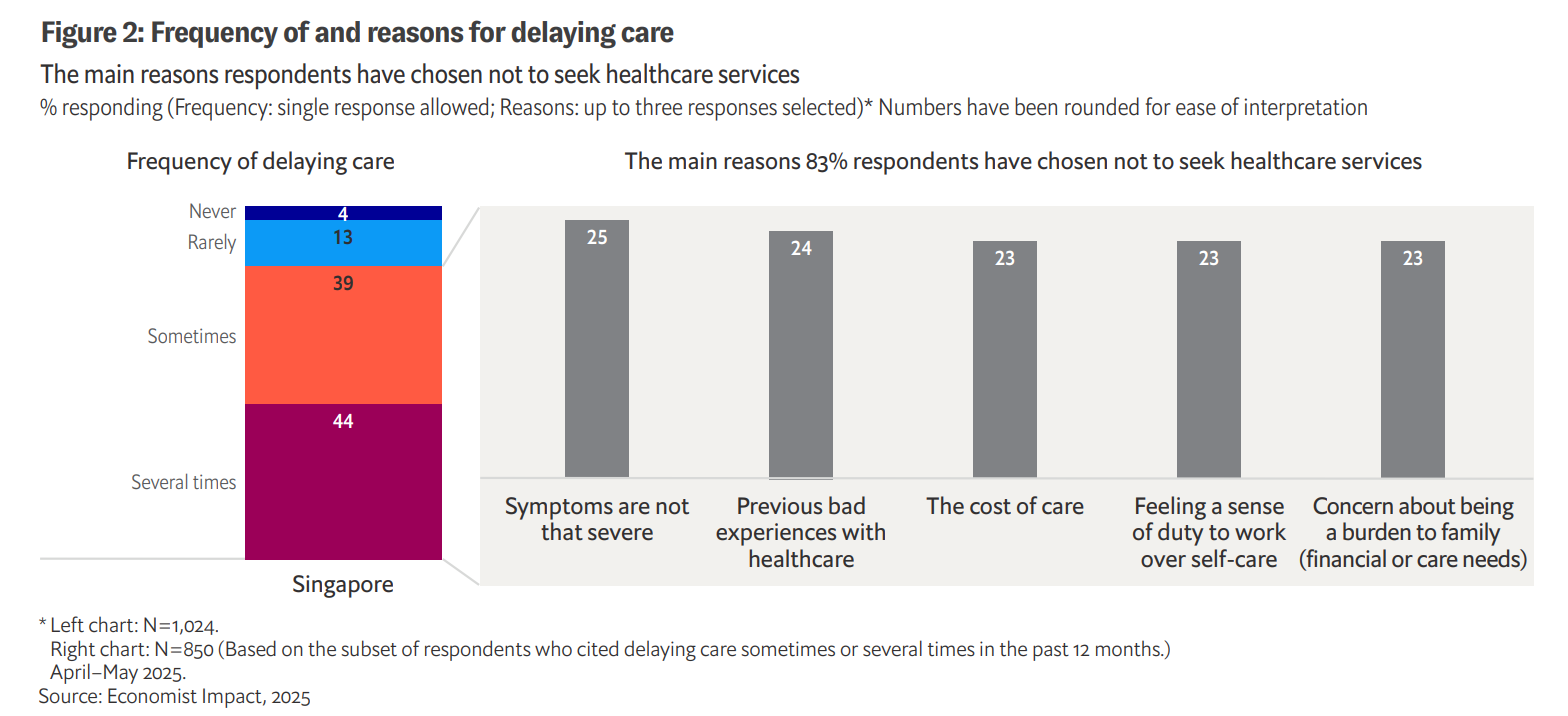
Work and family obligations drive delay in care
Dr Sidharth Kachroo, Chief Health Officer at Prudential Singapore, highlighted the potential long-term consequences.
He said: “Delaying care can escalate minor conditions into major health and financial burdens. Singapore’s healthcare system is robust, but it must now focus on becoming more accessible and better understood.”
The report emphasises that while Singapore has a well-resourced healthcare system offering both public and private care options, many individuals remain unclear about how to navigate it effectively.
Uncertainty around seeking care still widespread
Sixty-one per cent of respondents reported that they lacked sufficient information to make informed treatment decisions.
Similarly, 60 per cent said they often did not know where to go when they needed medical attention.
Dr Sarah Lu, Managing Director (Singapore Healthcare) at Raffles Medical Group, stated: “Family Physicians play a central role in preventive and personalised care.
A strong relationship with one’s FP helps reinforce the idea that healthcare is a shared journey, not a one-off event.”
The national initiative Healthier SG was cited in the report as an example of how Singapore is addressing this gap.
It aims to centre the role of Family Physicians in the patient journey, encouraging continuity of care and clearer escalation paths when specialist intervention is required.
Minimal disruption and personalised support are key patient needs
When asked what would give them more confidence and comfort in seeking healthcare, 39 per cent of respondents said minimal disruption to daily life was a priority.
Another 31 per cent said they wanted more guidance throughout the care process.
Arjan Toor, CEO, Health, Prudential plc, commented: “Improving the patient experience begins with understanding what people actually need.
Many find healthcare confusing and stressful — we aim to remove the guesswork by supporting them every step of the way.”
Cost worries remain a significant barrier
Despite available subsidies and insurance schemes, cost continues to deter people from seeking timely care.
Among those who delayed treatment, 23 per cent cited cost as a concern.
More than 60 per cent said they worried about being able to afford care, and around half were surprised by higher-than-expected medical bills in the past year.
Nidhi Swarup, founding chairperson of the Alliance of Patients' Organisations Singapore, said: “Too often, people only confront the cost of care when they're already at the emergency department. This leads to unexpected financial stress that could be mitigated with better education and planning.”
Singapore’s public healthcare financing system — often referred to as ‘S+3M’ — comprises subsidies, Medisave, MediShield Life, and Medifund.
It ensures affordability for essential care, but many Singaporeans also purchase Integrated Shield Plans for higher-tier ward access and private hospital coverage.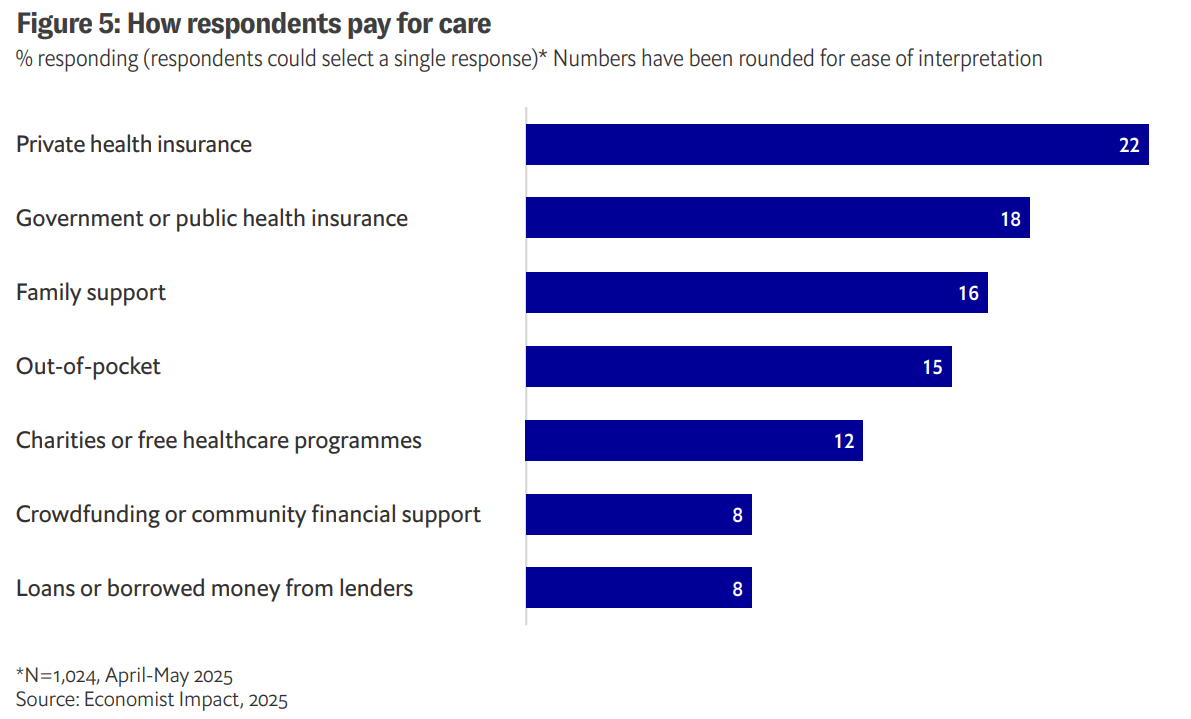
Tools exist — but awareness and guidance must improve
The Ministry of Health’s national fee benchmarks and online Health Insurance Planner allow individuals to compare costs and plan better.
However, many remain unaware of how to access or interpret these tools effectively.
Dr Kachroo added that insurers play a key role in bridging this gap: “Our financial representatives guide people in understanding what is covered, what’s out-of-pocket, and how to afford their preferred type of care. With our preferred panel partnerships and in-hospital concierge support, we aim to ensure cost transparency and a smooth experience.”
He concluded by stressing the importance of early engagement: “Health crises are unpredictable. The healthcare system should empower people with the confidence to act early, not hesitate.”




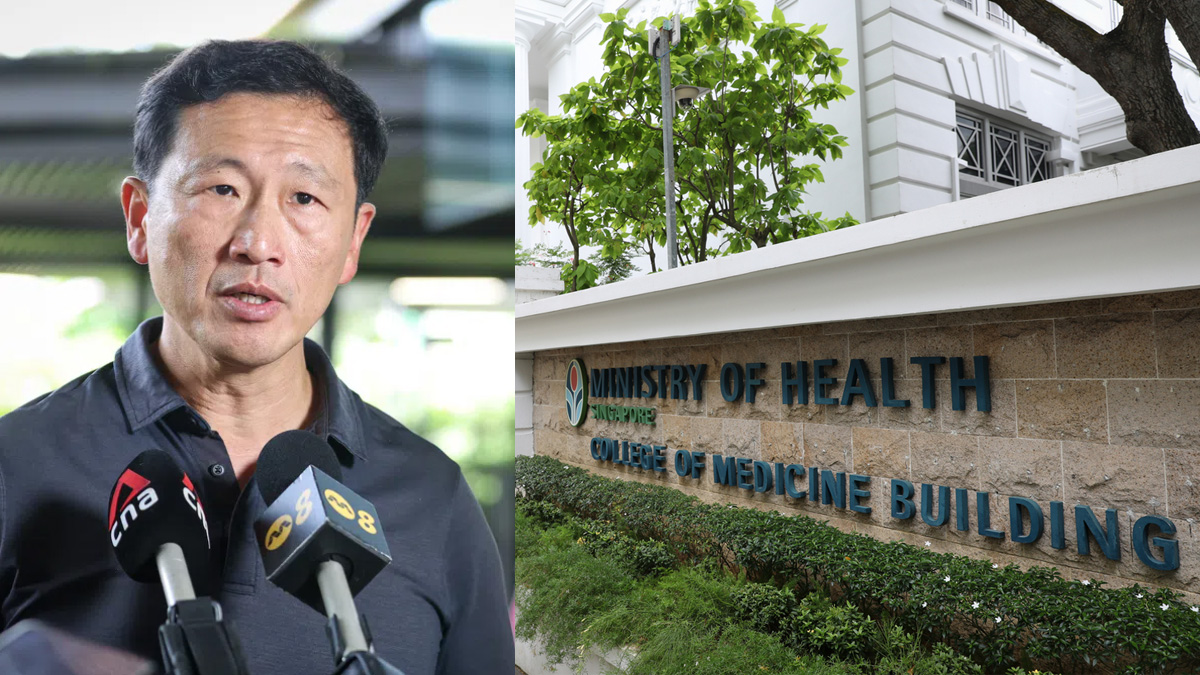
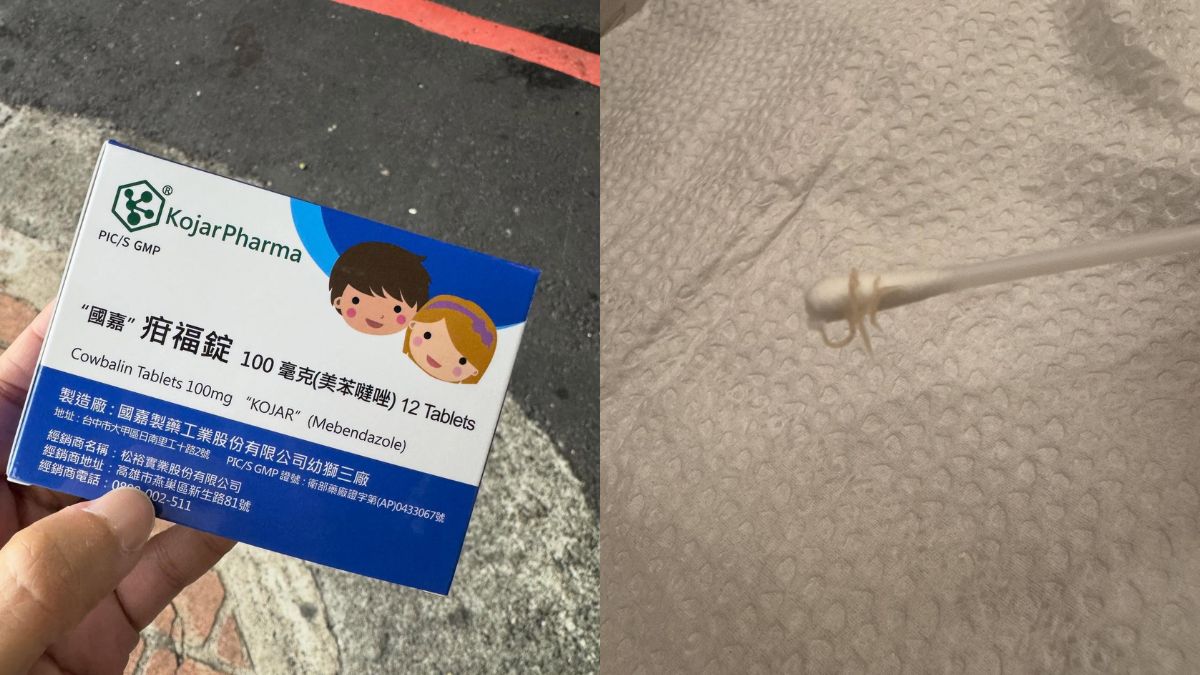

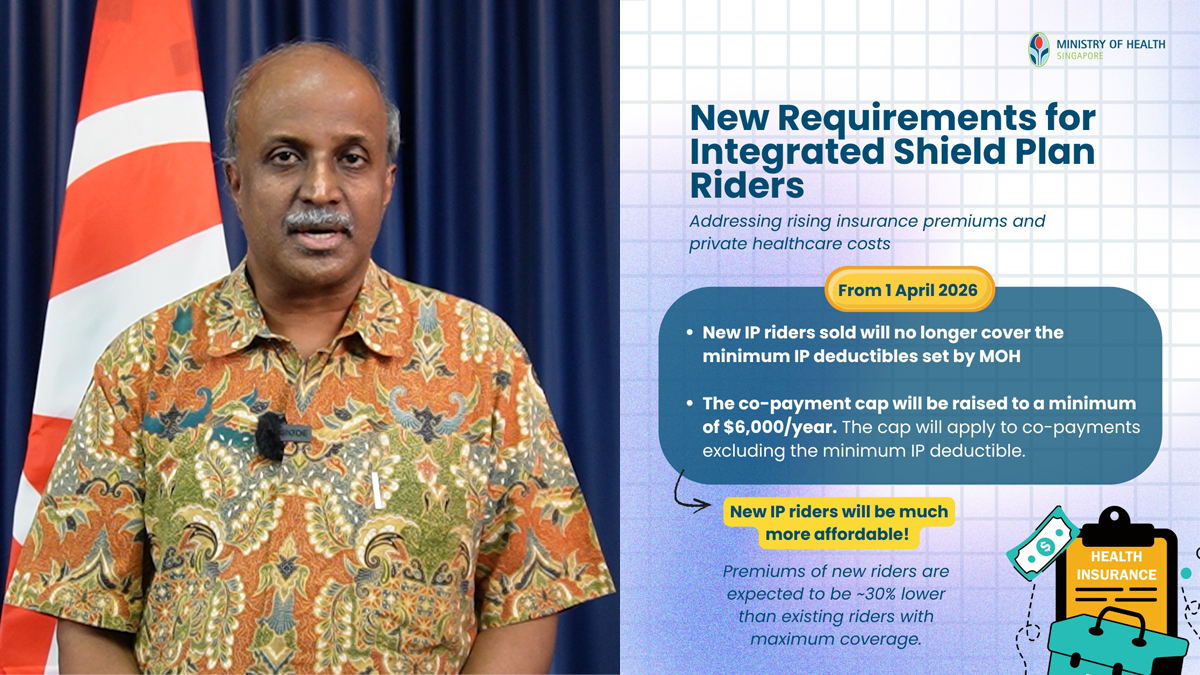
1 Comment